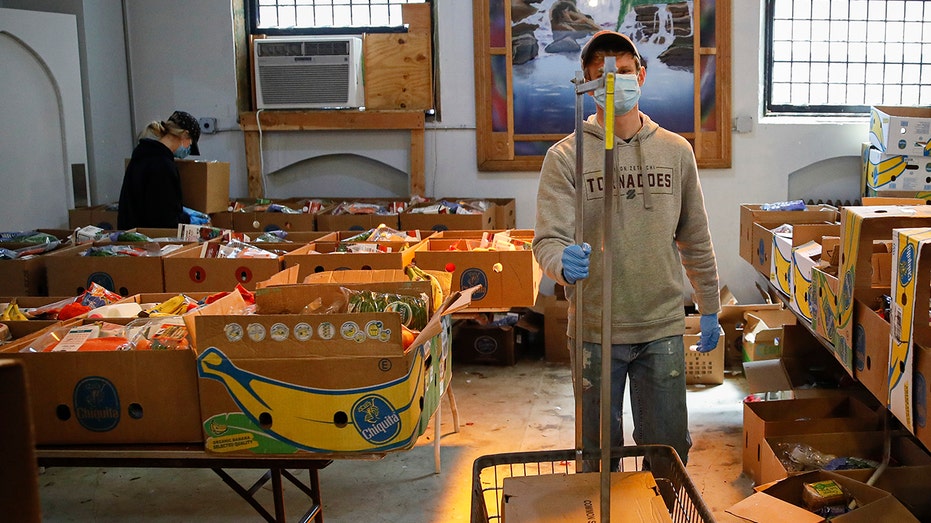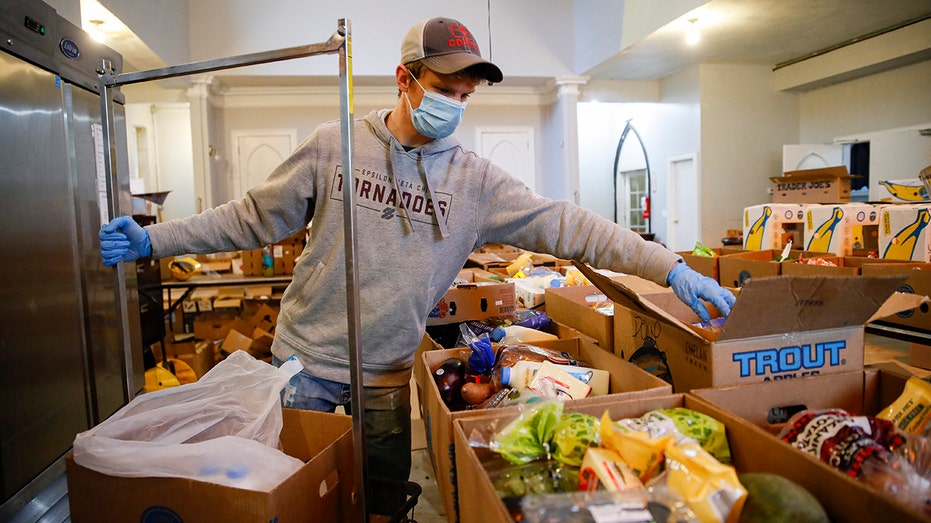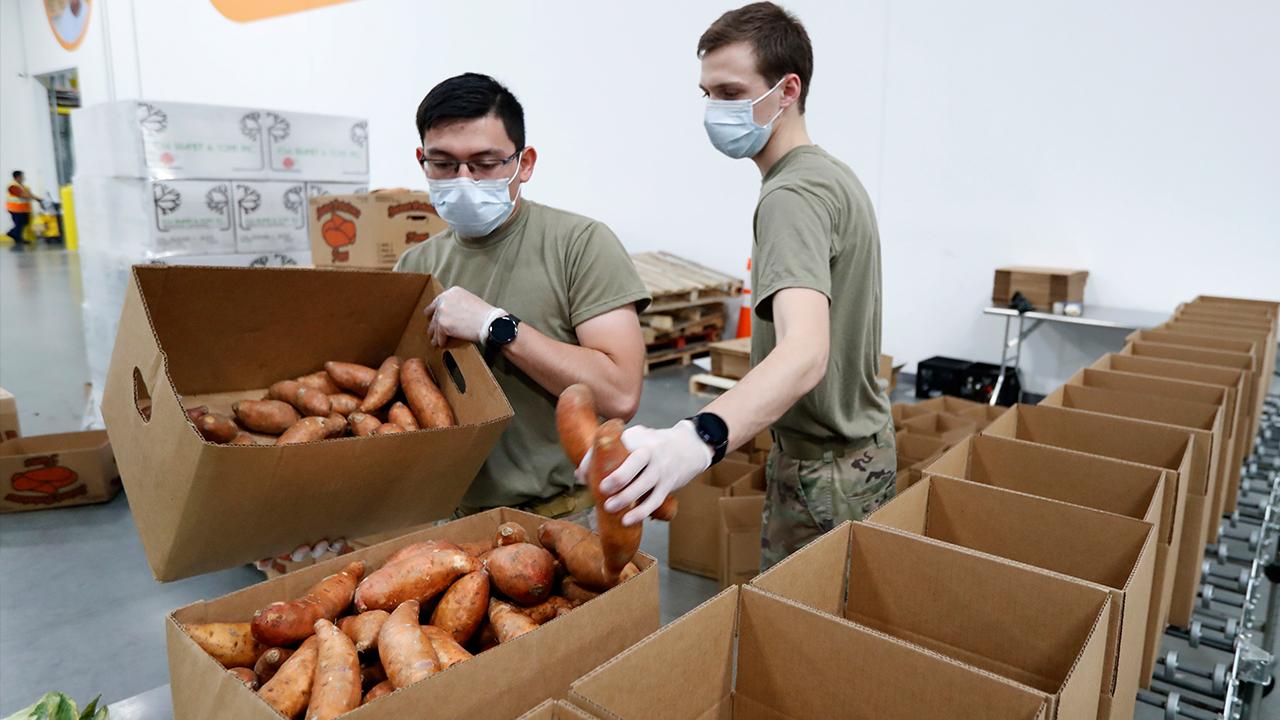Food pantries struggle after coronavirus-led unemployment rises
60% of food banks nationwide are struggling with food inventory
Food pantries throughout the country are grappling with how to feed Americans in need.
Nationwide layoffs resulting from the coronavirus pandemic have led to a 98 percent increase in the demand for free meals across the country as food banks see an unprecedented number of people lining up.

Staff member Jake Mincy helps organize and pack boxes of food donations for distribution to the public Saturday, April 11, 2020, in New York. (AP Photo/John Minchillo) (Associated Press)
Demand in New York City, the epicenter of COVID-19 where more than 10,000 people have died, is staggering. The city’s Mayor Bill de Blasio and the City Council announced $25 million in emergency funding for food pantries after many were forced to shutter. The funding will help feed thousands of New Yorkers in need.
America's food insecurity crisis affected 37 million people last year, according to the USDA, and it's only getting worse because of the pandemic. As a result, 60 percent of food banks nationwide are struggling with reduced inventory, according to Feeding America.
In Pennsylvania, the Greater Pittsburgh community food bank distributed 1 million more pounds of food in March this year than it did last year and its demand increased 545 percent , according to its website. Organizers spent $1.7 million in the past two months on food purchases, compared to an average of $550,000 in the same time between 2013 and 2019.

More Americans are relying on food banks as the employment rate skyrockets as a result of coronavirus-related shutdowns. (AP Photo/John Minchillo)
And in Nevada, where unemployment claims surged from about 6,400 before the shutdown to more than 93,000, a 1,400 percent increase. As a result, the Three Squares food bank in Las Vegas increased food distribution from 1 million pounds a week to more than 1.3 million pounds and increased the number of phone lines to provide resources to those in need.
Kansas City's Harvesters Community Food Network saw an increase in 40 percent or more in the number of people seeking food assistance, and the number of food donations continues to decrease.
AMERICANS GROWING THEIR OWN FOOD DURING CORONAVIRUS PANDEMIC
Food banks run on nearly 2 million volunteers, many of whom are senior citizens who are at risk for the coronavirus. And with a lack of employees, many food banks are being forced to close down.




















